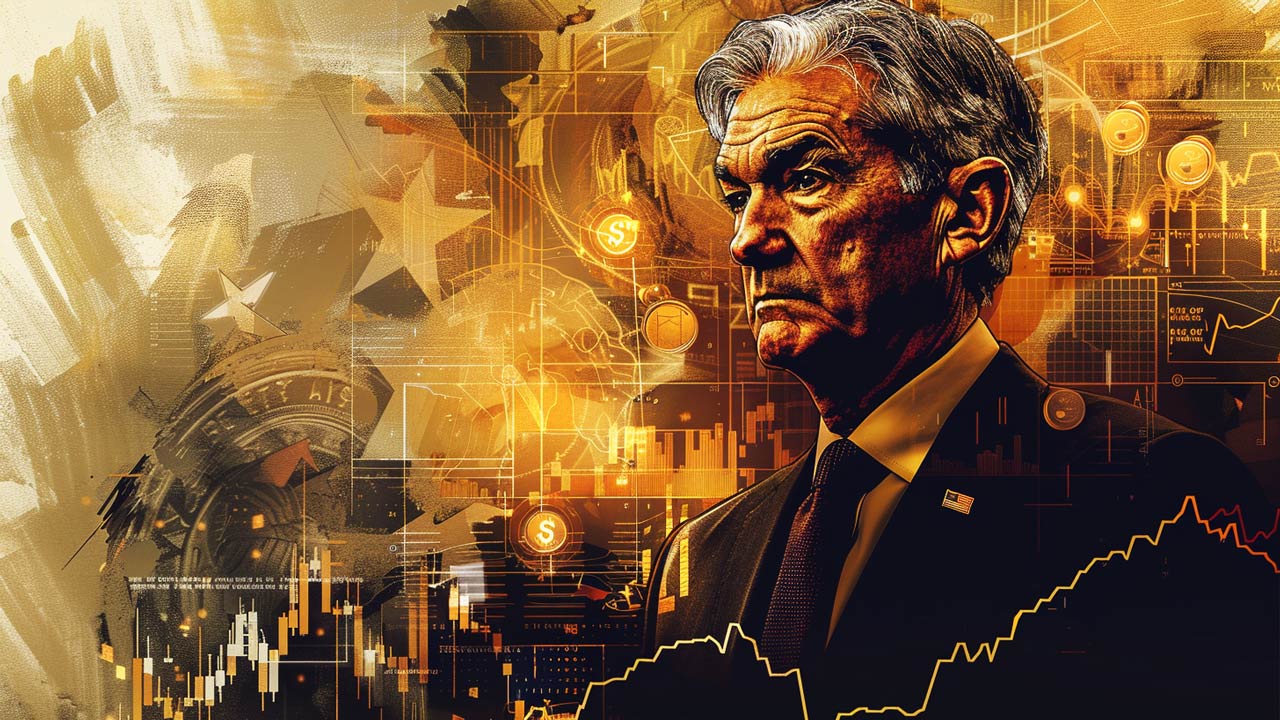Exploding Chinese Debt Could Threaten World Financial System
The US national debt stands at over $21 trillion and neither political party in Washington D.C. seems inclined to do anything about it. In fact, the GOP tax plan winding its way through the political process will add an estimated $1.5 trillion more to the debt over the next decade. And that doesn’t even account for the increases in spending that Congress will certainly approve over that timespan.
Of course, all of this government debt has serious ramifications. Corporations are also piling on credit. Last month, Mint Capital strategist Bill Blain predicted that “the great crash of 2018 is going to start in the deeper, darker depths of the credit market.”
Now consider this. China has an even bigger debt problem than the US, and analysts say it could threaten global financial security.
Jim Rickards recently listed a Chinese debt crisis as one of the possible snowflakes that could set off the next financial avalanche. As if on cue, the mainstream has picked up this narrative. As Business Insider reports it:
China’s ballooning levels of debt and dependency on credit to fuel growth continues to pose a major financial stability threat to the global economy, and could be the catalyst for the next crisis, according to the International Monetary Fund.”
The IMF recently completed a fact-finding mission to China. According to the international body, credit growth has outpaced GDP growth, creating a large “credit overhang.”
The credit-to-GDP ratio is now about 25% above the long-term trend, very high by international standards and consistent with a high probability of financial distress. As a result, corporate debt has reached 165% of GDP, and household debt, while still low, has risen by 15 percentage points of GDP over the past five years and is increasingly linked to asset-price speculation. The buildup of credit in traditional sectors has gone hand-in-hand with a slowdown of productivity growth and pressures on asset quality.”
The IMF listed three areas of “tension” this pileup of debt has created in the Chinese financial sector.
First, expansionary monetary and fiscal policy aimed at supporting employment and growth (sound familiar?) has led both national and local Chinese governments to provide huge incentives to keep failing companies afloat. Rickards said he saw the impact of this on his visit to China.
I was out in the countryside south of Nanjing not too long ago, visiting some of China’s famous ghost cities. I was with some Communist Party officials and provincial officials who were behind it all. Everything I saw, construction as far as the eye can see, magnificent in scope, was all empty. I’ve seen it firsthand. I turned to one of these officials and said, ‘This is all debt finance. This is all empty, so you have no revenue to pay the debt. So how are you gonna pay the debt?’ And he said, ‘Oh, we can’t. But Beijing’s going to bail us out.’ Not we hope Beijing will bail us out — but Beijing will bail us out. That isn’t an isolated viewpoint. It’s widespread.”
Second, “risky lending” has moved from banks toward “less supervised parts of the financial system.” As the IMF put it, Chinese investors are looking for increasingly complex ways to increase yields, which has led to “regulatory arbitrage and the growth of increasingly complex investment vehicles.”
Third, “widespread implicit guarantees have added to these risks.” According to the IMF, Chinese financial institutions seem unwilling to allow investors to lose money. This encourages even more risk-taking. They don’t see any downside.
A reluctance among financial institutions to allow retail investors to take losses; the expectation that the government stands behind debt issued by state-owned enterprises and local government financing vehicles; efforts to stabilize stock and bond markets in times of volatility; and protection funds for various financial institutions, have all contributed to moral hazard and excessive risk-taking.”
Loose monetary policy, malinvestment and excessive risk-taking – all of this sounds eerily like the setup before the 2008 crash.
This isn’t the first time the IMF has warned about Chinese debt. In an earlier report, it called the current trajectory in China “dangerous.”
International experience suggests that China’s credit growth is on a dangerous trajectory, with increasing risks of a disruptive adjustment or a marked growth slowdown.”
China has the second largest economy in the world behind the US, accounting for nearly 15% of the global economy, according to World Bank figures. As Rickards pointed out, if things crash there, it will certainly reverberate around the world.
Get Peter Schiff’s most important Gold headlines once per week – click here – for a free subscription to his exclusive weekly email updates.
Interested in learning how to buy gold and buy silver?
Call 1-888-GOLD-160 and speak with a Precious Metals Specialist today!





 Since Nayib Bukele became president of El Salvador, El Salvador has been in American media and global political discussion more than ever. While much of the attention focuses on Bukele’s mass incarceration of gang members and a decline in homicide of over 70%, Bukele has also drawn attention to his favoritism towards Bitcoin and how he […]
Since Nayib Bukele became president of El Salvador, El Salvador has been in American media and global political discussion more than ever. While much of the attention focuses on Bukele’s mass incarceration of gang members and a decline in homicide of over 70%, Bukele has also drawn attention to his favoritism towards Bitcoin and how he […] With gold hitting yet another awe-inspiring all-time high in the wake of Powell’s remarks reassuring markets (more or less) to expect rate cuts in 2024, a few analysts are pointing out risk factors for a correction — so is there really still room to run?
With gold hitting yet another awe-inspiring all-time high in the wake of Powell’s remarks reassuring markets (more or less) to expect rate cuts in 2024, a few analysts are pointing out risk factors for a correction — so is there really still room to run? Gold hit a new all-time nominal high, surpassing the previous record set in December of the previous year. The precious metal’s price reached approximately $2,140, indicating a robust and continuing interest in gold as a safe-haven asset, despite a rather peculiar lack of fanfare from the media and retail investors. This latest peak in gold […]
Gold hit a new all-time nominal high, surpassing the previous record set in December of the previous year. The precious metal’s price reached approximately $2,140, indicating a robust and continuing interest in gold as a safe-haven asset, despite a rather peculiar lack of fanfare from the media and retail investors. This latest peak in gold […] The gold price has been surging, with unprecedented central bank demand gobbling up supply. It has been a force to behold — especially as US monetary policy has been relatively tight since 2022, and 10-year Treasury yields have rocketed up, which generally puts firm downward pressure on gold against USD.
The gold price has been surging, with unprecedented central bank demand gobbling up supply. It has been a force to behold — especially as US monetary policy has been relatively tight since 2022, and 10-year Treasury yields have rocketed up, which generally puts firm downward pressure on gold against USD.  Total gold demand hit an all-time high in 2023, according to a recent report released by the World Gold Council. Last week, the World Gold Council (WGC) released its Gold Demand Trends report, which tracks developments in the demand for and use of gold around the world. Excluding over-the-counter (OTC) trade, 2023 gold demand fell slightly from 2022 […]
Total gold demand hit an all-time high in 2023, according to a recent report released by the World Gold Council. Last week, the World Gold Council (WGC) released its Gold Demand Trends report, which tracks developments in the demand for and use of gold around the world. Excluding over-the-counter (OTC) trade, 2023 gold demand fell slightly from 2022 […]